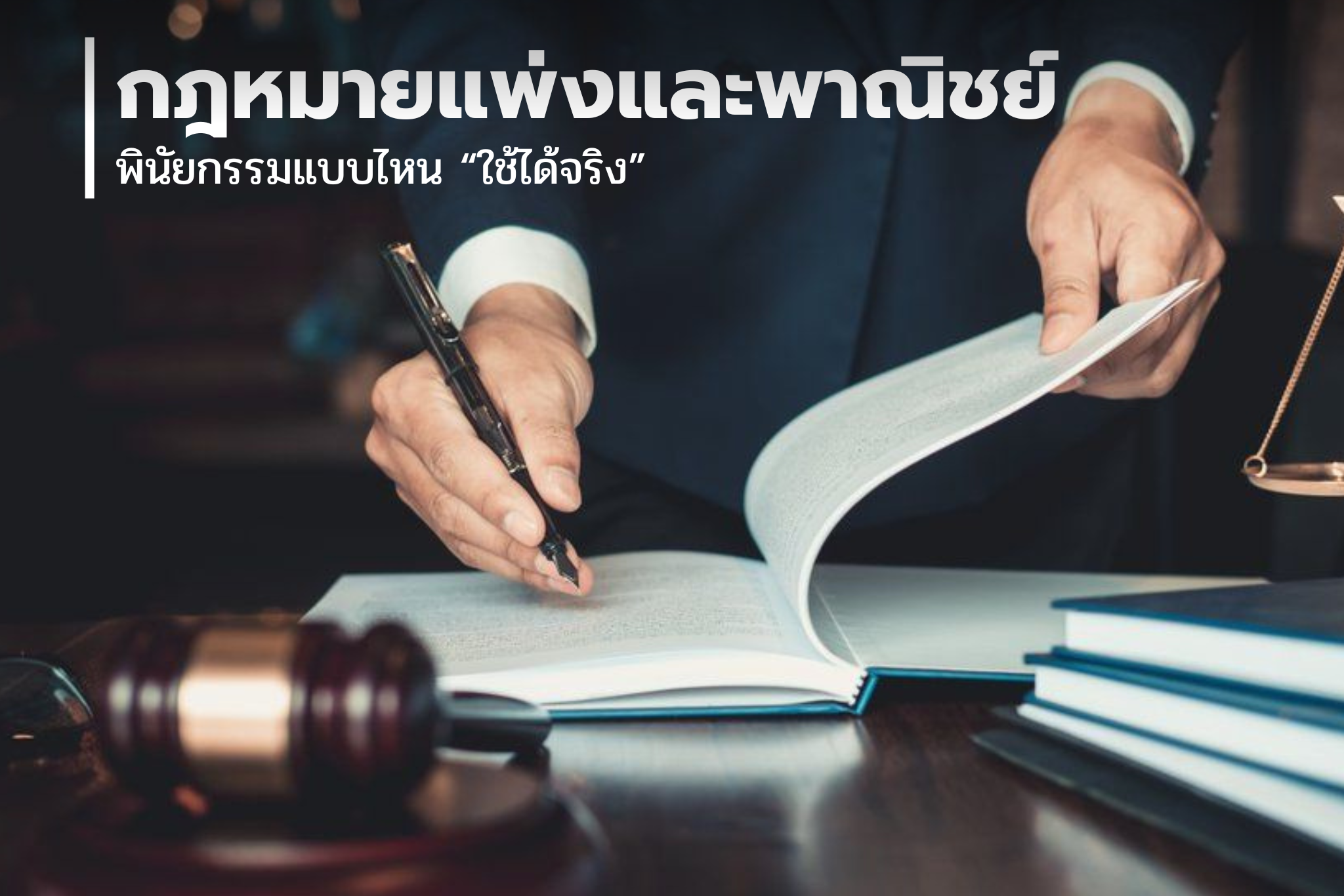"ฟ้องผี" กับ "กฎหมายมรดก" รู้ไว้เพื่อป้องกันปัญหาที่อาจจะเกิดขึ้น
กฎหมายมรดก คือกฎหมายที่กำหนดว่าทรัพย์สินของผู้เสียชีวิตจะตกเป็นของใคร
สำคัญมาก เพราะเกี่ยวข้องกับการ “โอนทรัพย์” เช่น ที่ดิน เงินฝาก หุ้น หรือบ้าน
หากไม่มีการจัดการอย่างถูกต้อง อาจทำให้ทายาทไม่ได้รับสิ่งที่ควรได้
“ฟ้องผี” คืออะไร?
เป็นภาษาพูด หมายถึงการ “ฟ้องคนตาย” เพื่อขอให้ศาลมีคำสั่งแต่งตั้งผู้จัดการมรดก
แม้ผู้ตายจะเสียชีวิตไปแล้ว ศาลก็สามารถรับฟ้องได้
โดยทายาทหรือผู้มีส่วนได้เสียจะยื่นคำร้องต่อศาล เพื่อขอให้ศาลตั้ง “ผู้จัดการมรดก”
เพื่อให้สามารถนำทรัพย์สินของผู้ตายไปจัดการ แบ่งปัน หรือโอนกรรมสิทธิ์ได้ถูกต้องตามกฎหมาย
จำเป็นต้อง “ฟ้องผี” หรือไม่?
ถ้าผู้ตายไม่มีพินัยกรรม หรือไม่มีการตั้งผู้จัดการมรดกไว้
จะต้องยื่นคำร้องต่อศาล เพื่อขอแต่งตั้งผู้จัดการมรดก
หากไม่มีผู้จัดการมรดก จะไม่สามารถแบ่งทรัพย์ หรือโอนทรัพย์ เช่น ที่ดิน หรือถอนเงินในบัญชีได้เลย
เรื่องจริงเตือนใจ :
“ป้าจันทร์” เสียชีวิตโดยไม่มีพินัยกรรม ลูกหลานจึงต้องรวมตัวกันไป “ฟ้องผี” เพื่อให้ศาลตั้งผู้จัดการมรดก
กว่าคดีจะเสร็จ ลูกหลานหลายคนก็มีปัญหากันเรื่องการแบ่งที่ดิน เพราะไม่ได้ตกลงกันไว้ก่อน
หากมีพินัยกรรม หรือทำเรื่องตั้งผู้จัดการมรดกไว้ล่วงหน้า ปัญหานี้จะไม่เกิด
สรุป
- กฎหมายมรดกช่วยให้การโอนทรัพย์เป็นไปอย่างถูกต้อง
- “ฟ้องผี” คือการใช้สิทธิทางกฎหมายเพื่อจัดการทรัพย์ของผู้เสียชีวิต
- จำเป็นมากสำหรับครอบครัวที่ไม่มีพินัยกรรมหรือข้อตกลงล่วงหน้า
หากคุณมีคำถามเกี่ยวกับการจัดการมรดก หรืออยากเริ่มวางแผนให้ครอบครัว
ปรึกษาทีมทนายอัลฟ่าได้เลยครับ
โทร. 091-724 6196 | ไลน์ : @ALPHALAWYERS
อีเมลล์ : alphalawyers1@gmail.com
เว็บไซต์ : www.alphalawyerskorat.com
#ทรายโคราช #ที่ปรึกษาทนาย #ที่เปรึกษากฎหมายมรดก #กฎหมายมรดก
#ทนายองค์กรค์มรดก #ทนายเอสอีเอ็ม #ทนายบริษัท #ทนายกฎหมายมรดก #ฟ้องผี
Understanding “Fong Phi” and Inheritance Law to Avoid Future Disputes
Inheritance law governs how the property of a deceased person is passed on to heirs.
It is crucial for transferring ownership of land, bank accounts, stocks, and other assets.
Without proper legal procedures, heirs may not receive what they are entitled to.
What does “Suing the Ghost” mean?
This is a colloquial Thai term that refers to filing a legal petition against a deceased person.
It doesn’t mean suing the dead in a literal sense.
It refers to asking the court to appoint an estate administrator (executor), even though the person has passed away.
The administrator will be responsible for managing and distributing the deceased’s assets lawfully.
Is it necessary?
If the deceased left no will or didn’t appoint an estate administrator,
heirs or stakeholders must file a petition in court to request this appointment.
Without a court-appointed administrator, the estate — such as land or bank accounts — cannot be divided or transferred.
True Case to Learn From:
petition to “sue the ghost” so that the court could appoint an administrator.
The process took time, and disagreements arose among the heirs over land division.
If a will or prior arrangements had been made, much conflict could have been avoided.
Summary:
- Inheritance law ensures the legal transfer of property
- “Suing the ghost” is a necessary legal process when no will or administrator exists
- It is essential for families to plan ahead to avoid future complications
If you have questions about inheritance or want to plan your estate properly,
contact the Alpha Lawyers Team.
Phone: +66 91 724 6196
Email: alphalawyers1@gmail.com
Line ID: @ALPHALAWYERS
Website: www.alphalawyerskorat.com







